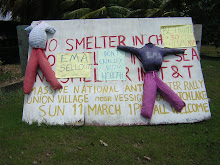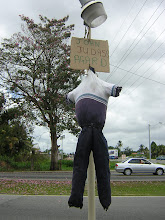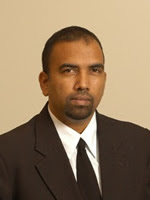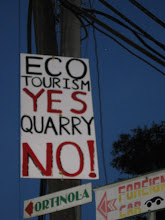A World Water Forum was held in March 2008 in Istanbul, Turkey, where a week-long gathering discussed water policy at a time when over a billion people lack access to clean water and two-and-a-half billion lack water for proper sanitation.
Activists from the People’s Water Forum, an alternative formation representing rural poor, the environment and organized labor, slammed the official event as a non-inclusive, corporate-driven fraud pushing for water privatization and called for a more open, democratic and transparent forum.
The forum, which is organized every three years by the French-based World Water Council, is funded in large part by the water industry. The forum opened with Turkish police firing tear gas and detaining protesters, who were shouting “water for life, not for profit.”
The final non-binding communiqué from the official forum describes access to water as a “basic human need” rather than a ‘human right’, despite efforts by dissenting Latin American countries...” (Democracy Now, 23 Mar 09)
“Recognizing water as a basic human right would mean equating it with other fundamental rights already observed by the United Nations, defining it as an unalienable right, and obligating most governments to ensure this for their entire populations.
Bolivia, Chile, Cuba, Ecuador, Guatemala, Honduras, Panama, Paraguay, Uruguay and Venezuela refused to sign the final declaration of this year’s water forum in Istanbul, but instead an alternative declaration that did recognize access to water as a basic human right”.
According to Maude Barlow, the senior adviser on water issues to the United Nations General Assembly, in an interview on New York-based radio program ‘Democracy Now’, “The World Water Forum is bankrupt of new ways to address the growing water crisis in the world, because they have maintained an adherence to an ideology that is not working, that has dramatically failed,”.
In a press conference, Bolivian Environment Minister René Orellana said this declaration “ignores native peoples, collective rights to water, local or community systems of water management, but above all, there was no political will to include any change to the text.”The 25 nations that signed an alternative declaration made a call for future debates over water with greater participation, social inclusion and democratic values. (Latinamerica Press, 2009).
According to the Economic Commission for Latin America and the Caribbean, “46 million of the 580 million inhabitants in the region lack access to drinking water, and 121 million do not have sanitation”.
See below for Trinidad and Tobago's position on water...
Saturday, April 11, 2009
Subscribe to:
Post Comments (Atom)


















































No comments:
Post a Comment